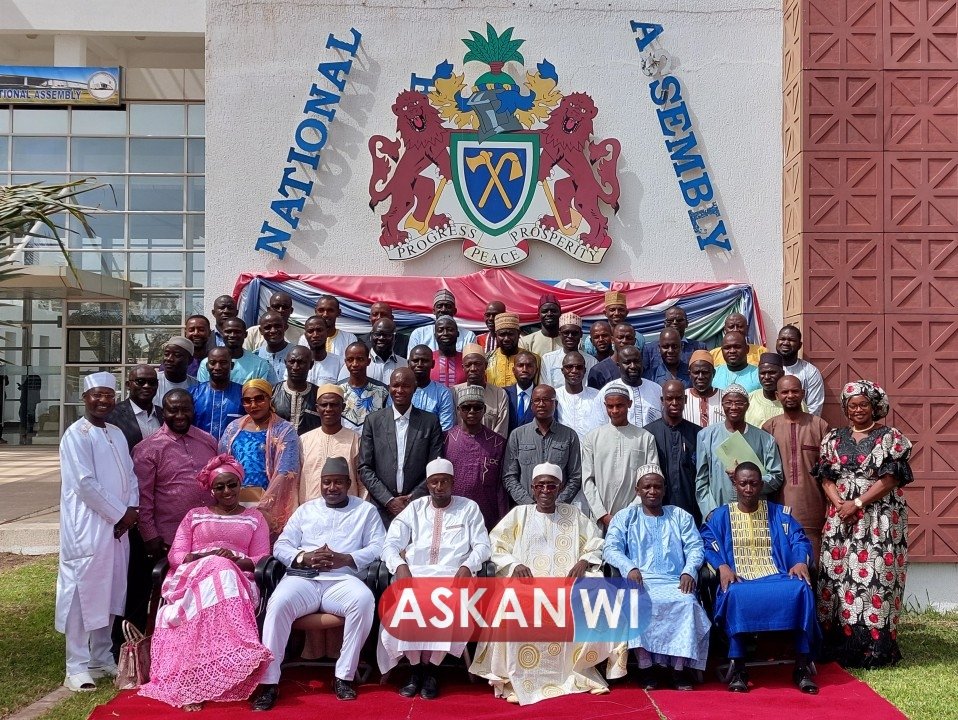Bill to Repeal FGM/C Ban Stripped and Rejected by Parliamentarians
Members of The Gambia’s Sixth Legislature (c) Yusef Taylor
By Yusef Taylor, @FlexDan_YT
Gambian National Assembly members voted to reject the Bill to repeal the ban on Female Genital Mutilation / Circumcision (FGM/C) today 15th July 2024 after going through the consideration stage. Parliamentarians voted in favour of the Report of the Joint Committee of Health and Gender 35 to 17, last week Monday 8th July 2024 after an intense debate.
However, the Bill was not only rejected, every single clause including the Short Title was voted down by Parliamentarians forcing Parliament to stop the Parliamentary process on the Bill. FGM/C is currently an illegal practice which involves the partial or complete removal of the female genitalia which is punishable by a fine of up to D50,000 and or three years imprisonment. According to the 2013 Demographic Health Survey, up to 76% of Gambian women have undergone the practice which experts say offers no health benefits.
The Bill to repeal the FGM/C Ban was tabled via a Private Member’s Bill by Hon Almameh Gibba of Foni Kansala back in February 2024 and eventually committed to the Joint Committee of Health and Gender. After the Joint Committee considered the Bill their Report which was adopted by Parliament recommended for the FGM/C Ban Repeal Bill to be rejected.
Today featured the consideration stage where a clause-by-clause consideration was done. After reading the first clause, it became apparent that the Bill would not pass the Consideration Stage.
Usually, Bills start with their Short Title which in this instance is the Women’s (Amendment) Act 2024. Even this was rejected by Parliamentarians with 20 voting in favour of the Short Title to remain part of the Bill and 32 Voting against the Short Title remaining part of the Bill, while no member abstained.
After voting on the First Clause, Speaker Jatta requested for the Chair of the Joint Committee to lead the Consideration Stage of the Bill which only has a total of 4 clauses. Speaker Jatta explained that he “believes that there was no proposal for any proposed amendment to the clauses”. This was confirmed by Joint Committee Chair, Hon Amadou Camara of Nianija who noted that the adopted Report's “recommendations are very clear that the Parliament outright rejects this. That is our position with no amendments”.
Hon Camara explained that “if you look at the Short Title of the Bill already, clause one, am speaking from a technical point of view. Whereas the Short Title is not voted it means we should not even proceed further, there is nothing to consider anymore. The Bill is dead and it is dead”.
Speaker Jatta agreed with this submission but ruled that Parliament would “exhaust the whole process”. At this stage members against the Bill attempted to avoid proceeding with the process but it was eventually agreed to proceed with the remaining three clauses.
Voting Patterns – Clause by Clause
In summary below is a count of how the votes were
Clause One – In Favor - 20, Noes - 32, Abstention - 0
Clause Two – In Favor - 19, Noes - 34, Abstention - 0
Clause Three – In Favor - 19, Noes - 33, Abstention - 0
Clause Four - In Favor - 19, Noes - 34, Abstention – 0
Bill Stripped Off All Clauses and Rejected
After the clauses were all read and rejected by Parliamentarians the Speaker made a ruling on the Bill which he said “The Assembly has never witnessed a scenario of an entire Bill negatived at Consideration Stage I will invoke order 81 of the Standing Orders”. This gives the latitude to the Speaker to make a ruling which he did as follows: “to rule that the women’s amendment Bill 2024, having gone through the consideration stage with all the clauses voted down is hereby deemed rejected and negatived”.
Speaker Jatta explained that given the fact that all the clauses have been voted down, it would be “a futile exercise as to allow the Bill to proceed to the third reading without its clauses”. The lack of clauses makes it “practically impossible” for the Bill “to be read a Third time and passed. In accordance with Order 8:1 of the Standing Orders, I so rule that the Bill is rejected and the legislative process exhausted”.
The Bill was eventually rejected and the Parliamentary proceedings continued with the National Security Bill. Below is an explainer of the specifics of the Bill and the Clauses the Bill aimed to repeal.
What Was the Bill Aiming to Repeal?
The Bill was aimed at repealing the ban on Female Genital Mutilation / Circumcision as contained in the Women’s (Amendment) Act 2015. Specifically, the two clauses of the Women’s Amendment Bill 2024 are Section 32A and Section 32B of the Women’s Amendment Act 2015.
Clause 3 – Amendment of Section 32A
▪ Section 32A(2)(a) – anyone who engages in female circumcision commits an offence and is liable on conviction to imprisonment for a term of three years or a fine of 50,000 Dalasi (US$1,0608), or both; and
▪ Section 32A(2)(b) – where female circumcision causes death, the punishment shall be life imprisonment.
Clause 4 – Amendment of Section 32B
▪ Section 32B(1) – anyone who requests, incites or promotes female circumcision by providing tools or by any other means commits an offence and is liable on conviction to imprisonment for a term of three years or a fine of 50,000 Dalasi (US$1,0609), or both.
▪ Section 32B(2) – failure to report female circumcision is an offence punishable on conviction by a fine of 10,000 Dalasi (US$21210).

